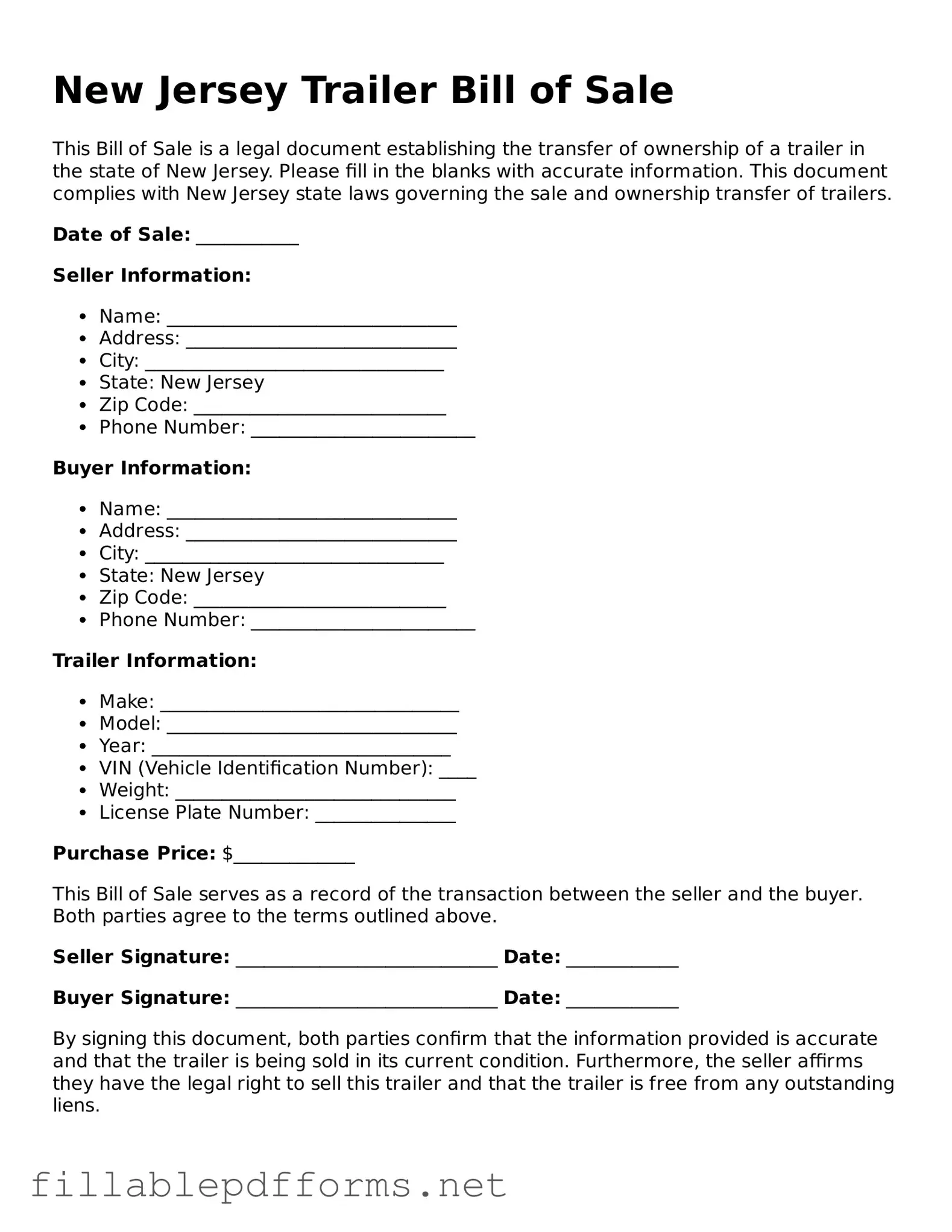Attorney-Verified Trailer Bill of Sale Form for New Jersey State
The New Jersey Trailer Bill of Sale form is a legal document that records the transfer of ownership of a trailer from one party to another. This form serves as proof of the transaction and includes essential details such as the buyer's and seller's information, trailer specifications, and sale price. Understanding this form is crucial for anyone looking to buy or sell a trailer in New Jersey.
Launch Editor Here

Attorney-Verified Trailer Bill of Sale Form for New Jersey State
Launch Editor Here

Launch Editor Here
or
▼ Trailer Bill of Sale PDF
Almost there — finish the form
Complete Trailer Bill of Sale online fast — no printing, no scanning.